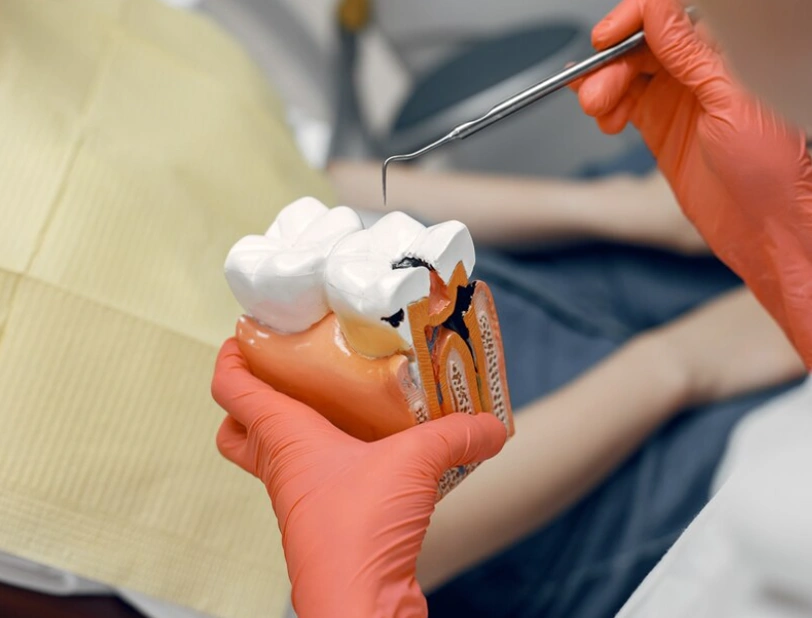Tooth Decay Symptoms
Tooth decay symptoms include discoloration on the surface of the tooth, which is one of the most common signs. Cavities often begin as white spots and may progress to brown or black discoloration as the decay advances. Sensitivity to hot, cold, or sweet foods is another early indication of tooth decay. As the condition worsens, pain and discomfort may develop around the affected tooth, making everyday activities like eating or drinking challenging.
Tooth decay symptoms are not always visible; in some cases, a person may remain unaware of the decay. When the cavity reaches the inner layers of the tooth, it can cause intense pain and a throbbing sensation. Additionally, persistent discomfort or swelling in the mouth may also occur. Decay weakens the tooth structure, increasing the risk of fractures. Promptly consulting a dentist is essential when any of these symptoms are observed to prevent further complications.
How to recognize the onset of tooth decay? In the initial stages, it usually shows symptoms that can be recognized by careful observation:
When such symptoms are noticed, it is important to consult your dentist to prevent the decay from progressing.
Symptoms of Tooth Decay Pain
Tooth decay can seriously affect both tooth structure and overall oral and dental healthif not treated properly. While there is usually no discomfort in the initial stages of caries, in the later stages it can spread to the deep layers of the tooth and cause pain. Although this pain is initially seen as mild sensitivity, it can turn into intense discomfort over time. Toothache caused by tooth decay causes hot-cold sensitivity.
Tooth decay usually starts on the surface and progresses to deeper layers over time. Dentin, the hard tissue of the tooth, plays an important role in the spread of decay. When the decay exceeds this layer, it can reach the root of the tooth and cause more severe pain. Here are the main conditions of tooth decay that cause pain:
- Hidden caries, when not recognized early, progresses and can cause sudden pain.
- When the decay reaches areas close to the nerves, throbbing or a constant pain sensation occurs.
- When infection occurs around the tooth root, the pain can be accompanied by swollen gums and even facial swelling.
- Decay can cause a sudden sensitivity to hot or cold foods.
Tooth decayin children and babies is often caused by excessive consumption of sugary foods and poor dental hygiene. Since caries in this age group progresses faster, the pain is usually recognized at an advanced stage of decay.

Symptoms of Tooth Root Decay
Root decay is a condition that usually starts and progresses at the root of the tooth and poses a serious threat to dental health. Since this type of decay develops in the invisible part of the tooth, it is often recognized late and more complex treatments may be needed if not intervened early.
The symptoms of tooth root decay can vary depending on the level of decay progression. Common symptoms of this condition include sensitivity in the root area. There is also constant pain and pressure around the tooth as the decay progresses. Gum recession is one of the symptoms of root decay, which can leave the root of the tooth exposed. Bad odor and taste in the mouth is one of the most common signs of advanced decay.
Treatment fortooth root decay can vary depending on the condition of the decay and the degree of progression:
In addition to regular oral care, it is important to go to the dentist regularly to preventtooth decay and to prevent tooth root decay. Tooth brushing and flossing is one of the most basic measures that can be taken to reduce the risk of tooth decay.
You can start the diagnosis and treatment of your problems in this area by contacting Dentist Elşen Yusufoğlu. You can contact us for detailed information.
